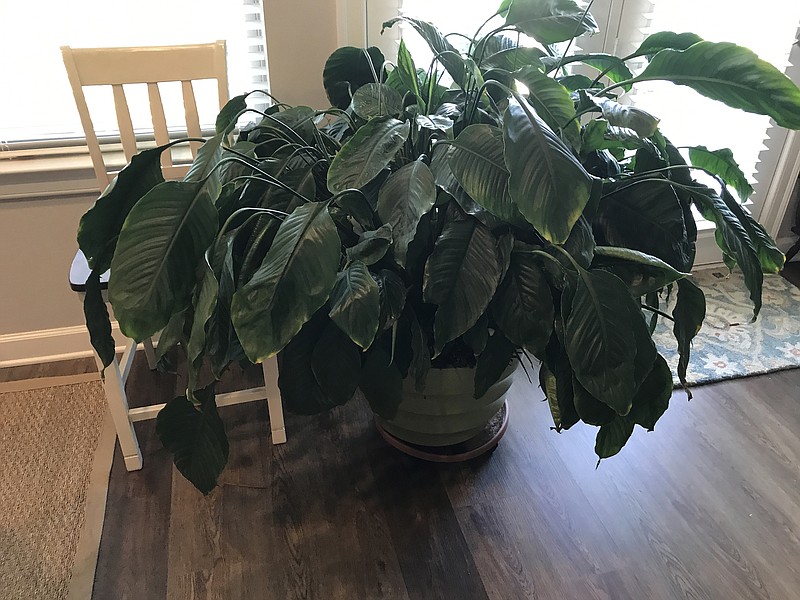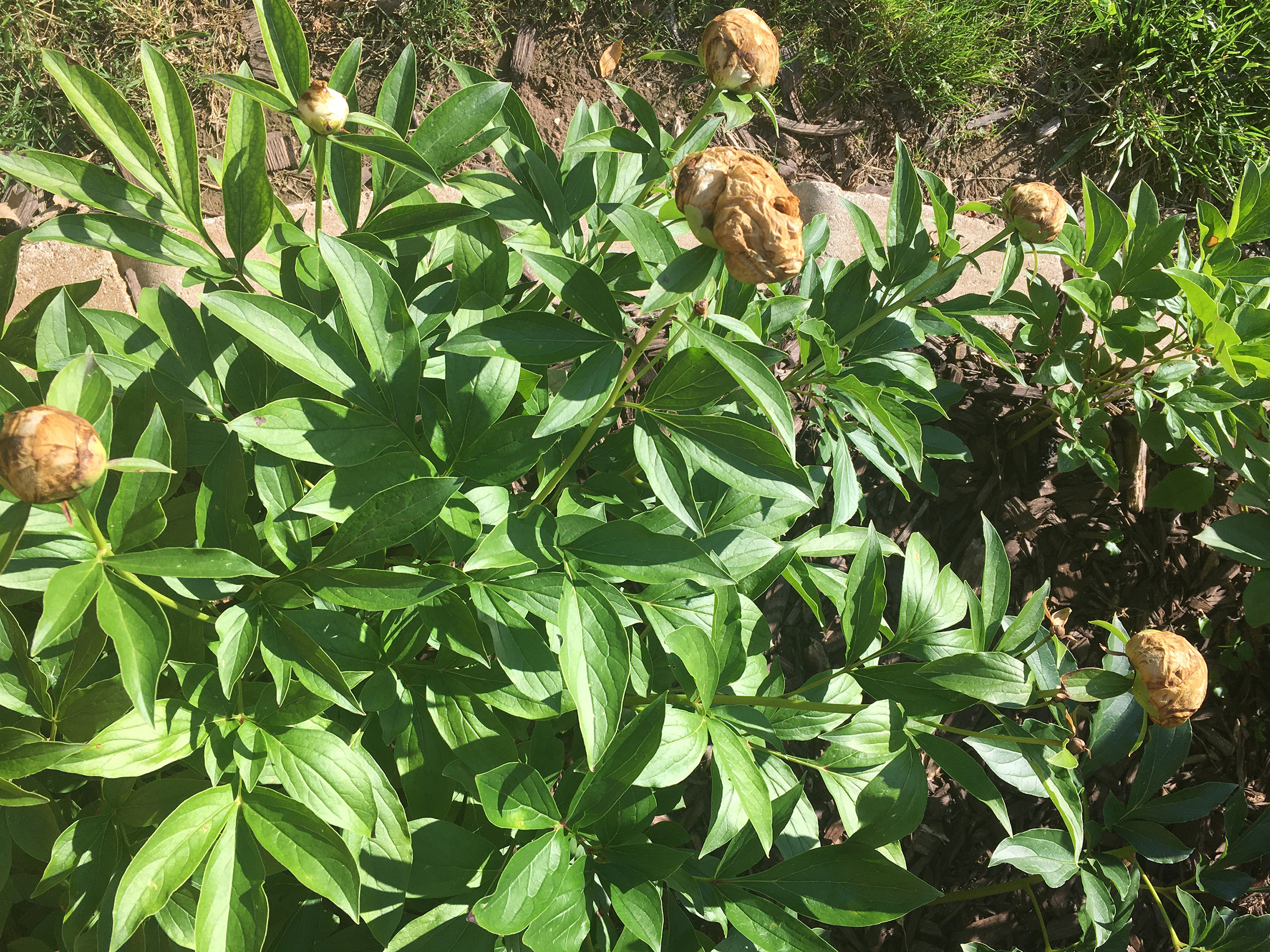Peace lily begins drooping after 20 years strong
Q: Can you please tell me what's wrong with my 20-year-old peace lily? [The reader sent a photo.] It continues to put on new leaves and looks healthy, but it is droopy, droopy, droopy. It does not need water as I watered it yesterday. I hope it doesn't need repotting as it would take a chainsaw to split. Help.
A: That is a huge plant for that pot. When is the last time you repotted it? I would guess it is root-bound. It is obviously healthy since the leaves are a nice deep green, and it is putting on even more new growth, but I think the droopiness will continue until it has more root space. If it is inside year-round, you could repot it now. For people moving plants back indoors I usually advise waiting until spring to repot. You have a couple of options when repotting. If you like the size of the plant, you can remove it from the pot and shave off an inch or so of roots all the way around and at the bottom, and then put it back in the same pot with fresh soil. If you want to reduce the size, dividing it can be done (which I know won't be easy). I use a serrated bread knife to cut through the crowns of large plants. Leaving it as is -- and living with the droopiness -- is another option. When they get so root-bound, it is hard to keep enough water in them, since the roots take up so much of the pot volume.
Favorite flower colonized by ants
Q: I have a Texas Star hibiscus in a container that now also apparently contains a colony of ants -- by the millions! This is a special plant given to me years ago by a friend now deceased. I would like to be rid of the ants without harming the plant. Do you have any suggestions?
A: Water the plant well, then use a soil drench of an insecticide for ants. Repeat until you don't see any more ants. You water in advance to make sure the plant doesn't get burned by taking up too much insecticide. You could also plant the hibiscus in the ground -- it would be happier growing free versus growing in a container. Texas Star is a hardy hibiscus that can grow quite large over time, provided it gets plenty of sun and water. If you do decide to plant it in the ground, rinse off the root system to rid it of ants, and then plant. You can plant any time, even this fall after it goes dormant.
Buds but no blooms
Q: I have a peony bed and most of them do just fine, but I have two bushes that bud out and the buds never open, just revert to this [the reader sent a photo]. What am I doing wrong?
A: It is interesting that only two plants are affected. The most common cause of flower buds forming and then not opening is disease. A fungal diseases called Botrytis blight can infect peony buds, causing the plants to turn brownish black and wither. This disease is most common during a cool, wet spring. Your best recourse now is to do a great job of cleaning up the garden, removing all parts of the affected peony plants. If you have mulch in the bed, you may want to remove that, too, and put down a fresh layer. Then wait and see what happens next spring. Do the peonies that are affected bloom later than your other varieties?
Forgotten plant found
Q: I think I started this as a small plant in a pot about three years ago and then decided to transplant it to the back of my yard. I sort of forgot about it and rediscovered it this spring. I have no idea what it might be. Can you help? I am attaching a couple of photos of the leaves. It is about 4 feet tall now.
A: It looks like a deciduous holly to me. Keep in mind that only the female plants will have berries -- and that is only after they are old enough to start blooming. You need male and female plants for fruit, but typically there are enough hollies around to aid in pollination.
Retired after 38 years with the University of Arkansas Cooperative Extension Service, Janet Carson ranks among Arkansas' best known horticulture experts. Her blog is at arkansasonline.com/planitjanet. Write to her at P.O. Box 2221, Little Rock, AR 72203 or email [email protected].

